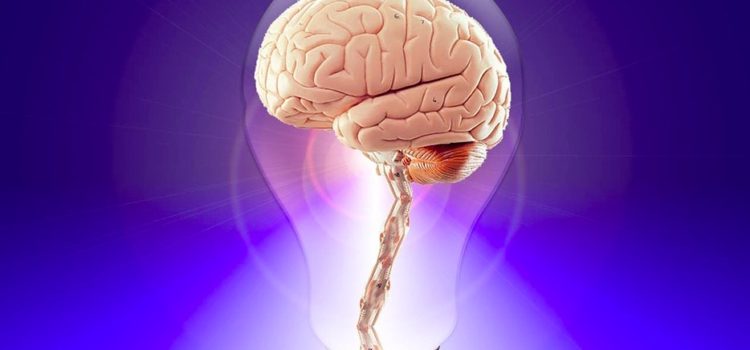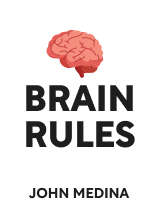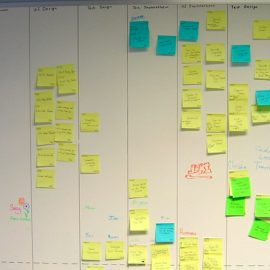

This article is an excerpt from the Shortform book guide to "Brain Rules" by John Medina. Shortform has the world's best summaries and analyses of books you should be reading.
Like this article? Sign up for a free trial here .
Are you having trouble remembering things? What are some brain exercises to improve memory?
Forgetting memories is completely normal for humans, but sometimes you want to remember special moments or important skills. Thankfully, Dr. John Medina has six brain exercises to improve memory so you won’t have to worry about forgetting them.
Learn more about Medina’s six techniques for memory improvement.
Techniques for Creating Strong Memories
To create accurate long-term memories, we need to repeat the information, starting soon after the event occurs. Creating memories can be difficult and long-term memory can be unreliable. If you don’t use repetition to create strong, reliable memories, then you’ll have difficulty learning from your memories.
Medina describes several repetition strategies that can help us create strong memories.
Give Meaning to Your Memories
One strategy is to use a complex process to give meaning to your memories. When information has a lot of meaning, it becomes much easier to remember. For example, if you need to memorize a shopping list, it would help you to think about what you need each item for. You’ll have an easier time remembering the items than if you tried to memorize them without context.
(Shortform note: One way to give memory meaning, which Barbara Oakley suggests in A Mind for Numbers, is to create a “memory palace.” To create a memory palace, imagine a place that you know well—for example, your childhood home. Then fill it with images representing the concept you want to remember. If you’re trying to remember your grocery list, for example, you could imagine a dozen eggs sitting on the shelf of the kitchen, bottles of hand soap on the bathroom counter, and detergent in the laundry room.)
Repeat Information
Another strategy is to repeat information over an extended period of time as a brain exercise. To improve memory, it’s more effective to space out repetition of information than trying to cram it all in at once. Rather than repeating information 15 times in a row, then, Medina would recommend repeating it once a day for 15 days.
(Shortform note: Research suggests that repeating information without breaks in between is hardly better than not repeating information at all. But if you don’t have time to repeat information periodically for several hours or days, repeating with short breaks in between can be helpful. For example, if you have a test in an hour and want to remember a vocabulary word, you could repeat it frequently with 10-second breaks in between.)
Talk About Your Memory Immediately
Another strategy is to reflect and interpret a memory right after it’s formed in your brain. Exercises to improve a memory that is fresh are useful if you have an experience you immediately know you want to remember. Right after an event occurs or you learn new information, discuss the facts of it with someone else. Once you’ve talked about the facts, then discuss your interpretation of the event or information.
(Shortform note: If you’re an educator, one way you can use this memory-boosting technique is to quiz students often. This is because it makes students apply what they learned, and consider their interpretations of the information, right after they learn it.)
A Technique for Retrieving Memories
In addition to using brain exercises to improve memory creation, you can use strategies for retrieving long-term memories. One strategy is to put yourself in the same circumstances you first learned the information in. This is called context-dependent learning: People recall information better in the same situation in which they first encoded it. For example, if you learned a concept in your backyard, you could return to your backyard to reinforce it. Or if you were listening to a particular song, you could play that song again while you review.
| State-Dependent Learning In the same way that you can better recall information in the same place you were when you learned it, you can also better recall information when you’re in the same mood or physical state. This is called state-dependent learning. One study showed that people who learn information while drunk remember it better while drunk, while those who learn information sober remember it better sober. This shows how the physical state you’re in affects what you remember. If you want to create strong memories, try recreating the state you were in when you first learned them. For example, if you were in a good mood when you first learned a piece of information, try thinking of happy memories to recreate that same mood. |
Brain Exercises to Improve Memory in School and at Work
How well we remember information affects our success in important areas of our lives, especially school and the workplace. Because of this, Medina suggests several techniques to strengthen memories in school and at work.
Using Short-Term Repetition
One strategy is for schools to repeat material several times over the course of a day, instead of having hour-long classes for each subject. According to Medina, frequent repetitions would encourage strong memory encoding. For example, a student might have 25 minutes of English, 25 minutes of math, and 25 minutes of history, which would be repeated three times. (Shortform note: Repeating information in intervals helps to remember concepts, so it’s recommended that students repeat what they learned after class, in the evening, and before the next class. This suggests that Medina’s idea would be an effective model for learning: It provides class time to reinforce concepts, so students could retain information better and spend less time studying.)
Using Long-Term Repetition
Another brain exercise that improves a memory’s strength is for schools and businesses to repeat key information over the course of several years. Long-term repetitions can help to cement information in your long-term memory. In schools, Medina suggests reviewing course material periodically. For example, students would review basic algebra once a year from the seventh grade to the eleventh grade. In businesses, Medina suggests offering classes that provide reviews of important skills. For example, a marketing professional would be able to take classes to refresh their knowledge on social media, digital marketing, and writing skills.
(Shortform note: Research shows that learning information over a long period of time can help cement it. A study of foreign language students showed that they remembered words better when they learned and repeated them over the course of 56 days than when they learned them over 28 days. This suggests that Medina’s idea of repeating information over an extended period of time could help students retain information.)

———End of Preview———
Like what you just read? Read the rest of the world's best book summary and analysis of John Medina's "Brain Rules" at Shortform .
Here's what you'll find in our full Brain Rules summary :
- An explanation of how the brain works in a simple and accessible way
- The 12 rules that help fulfill the core functions of the brain
- How to improve your thinking and learning abilities






